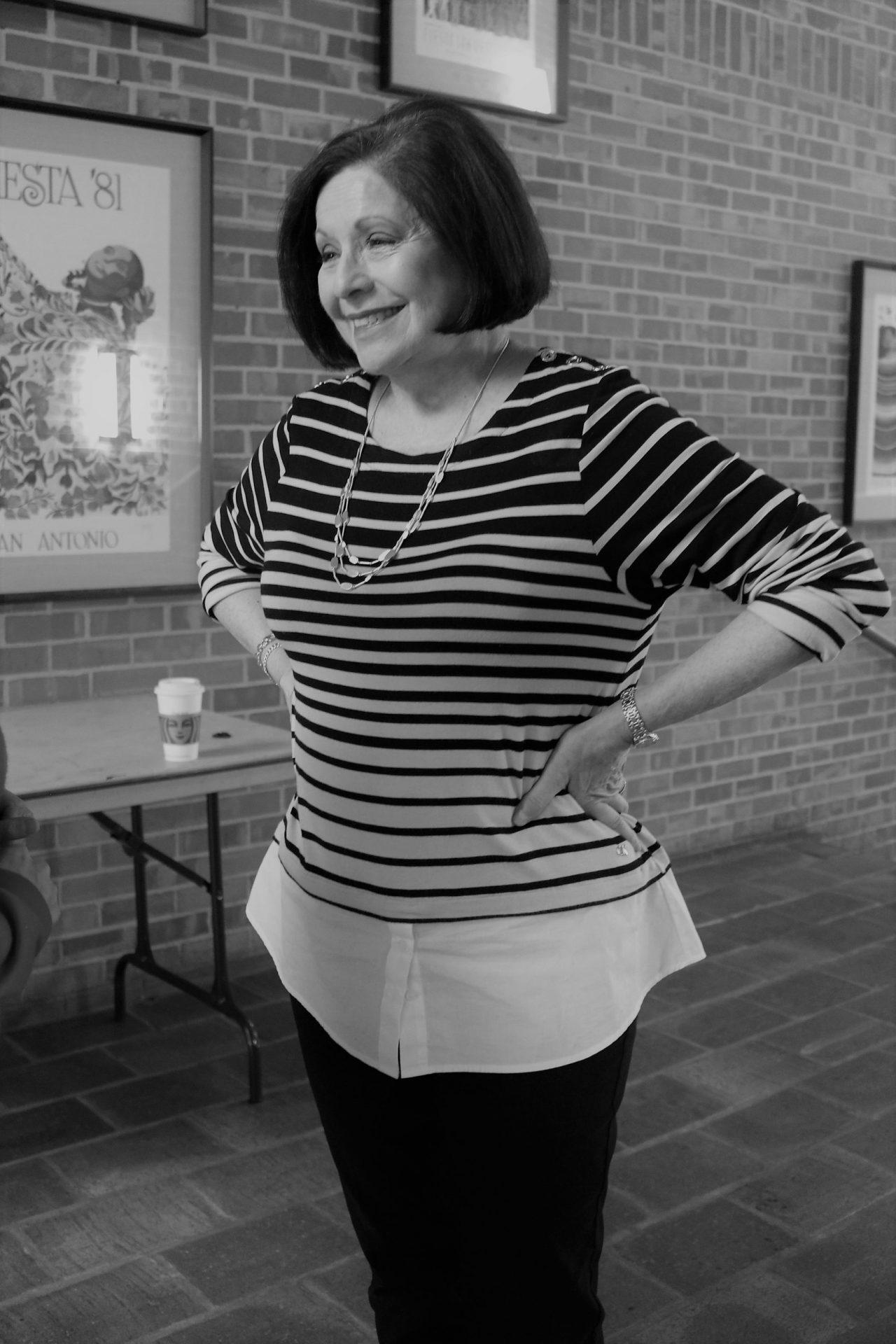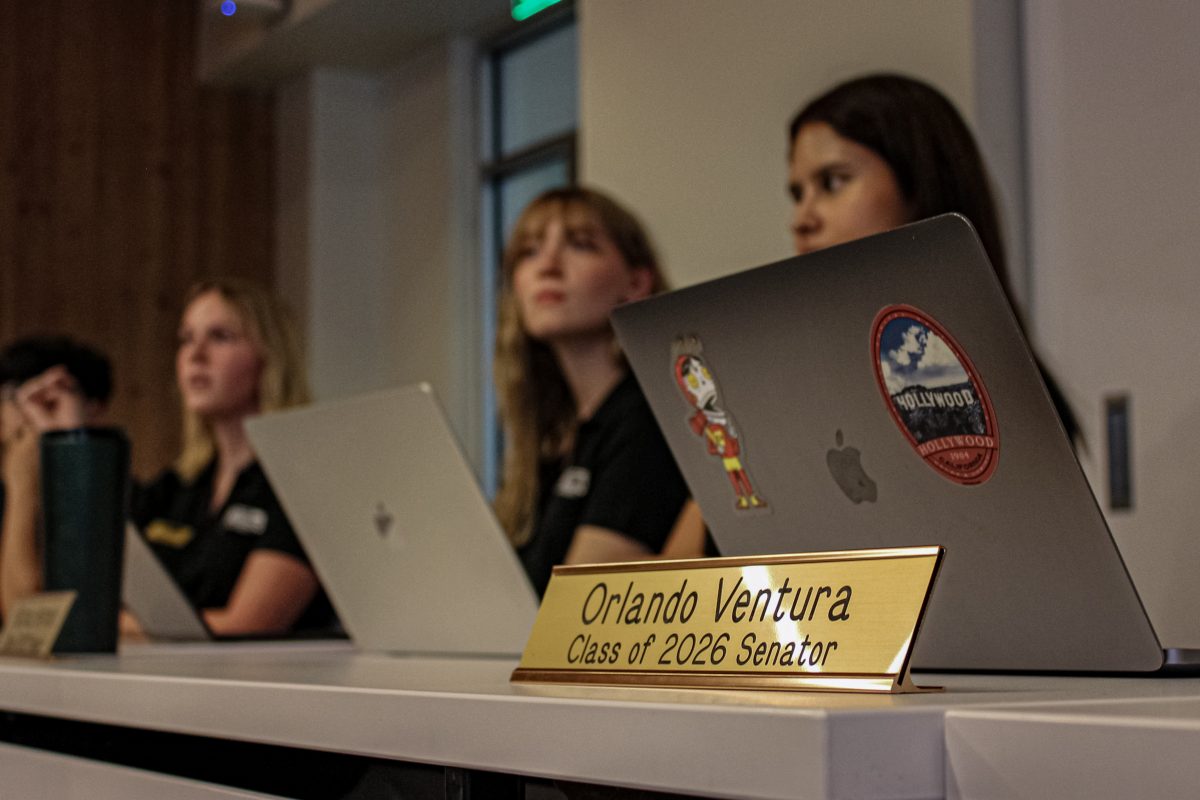Photo by Mona Minpour
In 1987, Sam Walton, a co-founder of Walmart Inc., created the Walton Family Foundation with the intention to fund the growth of charter schools. In the spring of this year Alice Walton — Sam Walton’s daughter, Walton Family Foundation board member and Trinity alumna — awarded a $5 million grant to Trinity University for the creation of the Trinity School Design Network (TSDN).
The TSDN is a training program for principals interested in creating a new school or expanding educational programming within an existing school. The program is funded in full by the Walton Family Foundation. Trinity’s Department of Education selects and trains participants. Linda Mora is the interim executive director of TSDN.
“The end result is that they will be prepared to open their own school if they choose to do that,” Mora said.
The first iteration of the TSDN includes Tracy Myers, who is in her second year as principal of Hidden Cove Elementary in Southwest ISD in San Antonio; Julio Garcia, principal of Highlands High School in San Antonio ISD (SAISD); Margret Bray, principal of the Law Enforcement and Medical Services magnet school at John Marshall High School in Northside ISD; and Joaquin Hernandez, principal of IDEA Judson, a charter school under the IDEA Public Schools umbrella.
Ninety-nine percent of Hidden Cove Elementary students come from economically disadvantaged families, according to Mora. In 2018, SAISD moved to allow charter school Texans Can Academies to operate a program on the campus of Highlands High School, and Highlands is preparing to open two specialized magnet programs in the next two years. The Law Enforcement and Medical Services magnet school is in its first year. IDEA Judson is the only charter school in the network.
The ultimate goal of the TSDN is to train principals interested in opening a new school, whether that school is a traditional or autonomous public school, a specialized public magnet school or a charter school.
“And so that’s how we’re trying to structure our courses: to help them think outside the box,” Mora said. “And to think about, ‘If you opened a new school, what would that look like?’”
For now, each participant receives a $25,000 stipend, as does their school district or charter organization. That stipend will decrease in upcoming years as the total number of program participants increases.
Throughout the year-long program, the principals attend multiple monthly meetings and national education conferences, hear keynote speeches and visit successful examples of non-traditional schools.
Julio Garcia, principal of Highlands High School, is preparing to phase out an engineering-focused magnet program. Highlands will launch its replacements, a manufacturing-focused magnet and an aerospace-focused magnet, in fall of 2020 and fall of 2021, respectively.
He is also learning how to better work with the leadership at charter school Texans Can Academies, which runs a program at Highlands High School.
“I really appreciate having a bridge between Texans Can and Highlands High School,” Garcia said. “That communication has to be very clear because even though they operate separately from Highlands, they are on our campus.”
In the past, Alice Walton has often worked with charter schools, but Trinity’s education department focuses on public schools. Training principals from all schools, the TSDN aims to accommodate Walton’s philanthropic mission while still fitting into the focus of Trinity’s education department.
For decades, policymakers and educators have grappled with questions about the effects of charter schools on traditional public schools. According to Murchison endowed professor and chair of the department of education Oscar Jiménez-Castellanos, the charter school movement began in earnest in the 1980s when school choice proponents argued that public schools were failing and that innovative competition in the field of education was necessary to achieve more successful outcomes for students.
The nationwide expansion of charter schools has hurt some public schools, according to Jiménez-Castellanos. Charters can draw money and students away from public schools while not being held to the same standard as public schools.
“The practical tension is if these charter schools pop up in areas where there really is no need or space for additional enrollment, then it’s really taking away from the public school enrollment,” Jiménez-Castellanos said. “It’s hurting public schools in that regard by taking away their enrollment, thus impacting their budgets.”
One component of the controversy around charter schools is the ability to hire non-state certified teachers. About half of the teachers at IDEA Judson are not certified but are highly qualified in their field, according to principal Joaquin Hernandez.
“What typically trends in charter schools is usually college graduates who are still trying to figure out if they want to be teachers or want to move into a different career,” Hernandez said.
He said that a lot of charter school teachers will start teaching without a certification but will obtain one within a few years, if they decide they want to continue teaching.
Charter schools’ inclination to hire teachers who have not been certified by the state is common, according to Mora.
“They have more flexibility in doing those kinds of things,” Mora said. “And I think that’s the basic push and pull between public and charters.”
The contention is about more than teacher certification, though, according to Jiménez-Castellanos.
“The controversy is: ‘should we be investing in these choice models, or should we be investing in improving the current, traditional public schools?’” Jiménez-Castellanos said.
According to Jiménez-Castellanos, traditional public schools serve 95 percent of students in San Antonio.
“So if we ignore improving public schools, then we’re really ignoring 95 percent of the community, which I think is unethical,” Jiménez-Castellanos said.
Jiménez-Castellanos said Trinity’s Department of Education is uninterested in entering the charter versus traditional public school debate.
“To me, this program is not focused on either charter or traditional public schools.” Jiménez-Castellanos said. “It’s really saying that we really need to improve education across the board, and we need to make sure we provide exceptional leaders that are able to start up a school when there’s a growing need.”
Founded in Texas, IDEA Public Schools is considered a model of a successful charter network.
“There’s a couple of key players in the charter world, IDEA being one of them and KIPP being the second,” Jiménez-Castellanos said. “Those are probably the largest, most robust charter school developers in the area.”
In addition to serving as principal, Hernandez also founded IDEA Judson in 2016. The school is in its fourth year, three years away from graduating its first class of high school seniors. The school started with a class of sixth graders and adds a new class each year.
Hernandez appreciates the depth of the curriculum offered by the TSDN.
“My learning has been a lot about going beyond the surface interpretation of what education is, and really learning about the social, emotional and mental aspects of education,” Hernandez said. “A lot of the books that we’ve been reading have really helped me develop and dig deeper.”
According to Mora, Trinity hopes to include more charter schools in the future.
“[Alice Walton] is really interested in charter schools,” Mora said. “And so we’re hoping that this next year we’ll have at least two or three charter schools.”
The Walton Family Foundation funding will last for five years. Trinity plans to increase the number of annual participants to at least 7 next year and to 10 in the following years.
Correction: In the first version of this story, there was a sentence attributed to Linda Campbell, senior director for alumni relations and development, that said Walton pushed Trinity to work with charter schools. This paraphrase was misattributed.















Lanita Hale • Oct 26, 2019 at 11:00 am
I would like to be involved.
Lanita Hale, M.Ed
842-417-1696